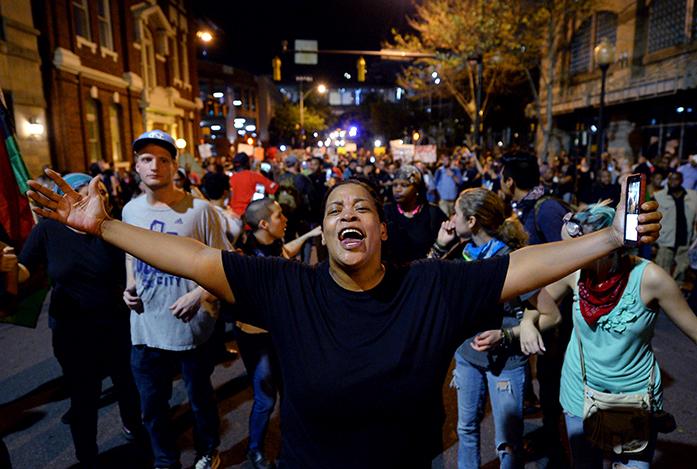By Hanna Grissel
During a time in which modern technology allows people to expose corruption that has been happening since, well, the founding of law-enforcement agencies, it’s no surprise that there’s opposition from the agencies to be any more transparent than they have been. Though I wonder how they consider a blackout curtain transparent at all.
Regardless, a bill was signed into law in North Carolina that limits transparency in concerns to footage taken on any mode of police camera including body cameras, dash-cams, etc. Susanna Birdsong of the ACLU of North Carolina policy council noted that a recent proposal, “HB 972 would force people to go to court to obtain footage, a process most simply can’t afford. This bill would also deny local governments the ability to determine if footage does in fact need to be released in order to maintain public confidence, something they have the ability to do under current law.”
Advocates calling for transparency in the criminal-justice system tend to see the addition of body cameras to police uniforms, and the requirement to wear them, as a monumental progression in protecting the rights of both civilians and officers.
Plain and simple, I am one to believe that transparency in the criminal-justice system, especially in concerns to the interactions between police and civilians, should be expected and for lack of a better phrase, a God-given right of the people.
In the midst of this ongoing discussion on, and the exposure of, police-department corruption, excessive uses of force, and quite frankly state-sanctioned slayings, I’ve heard so many people defend police departments and the ways in which they handle business. From news commentators to members of my own family, I’ve heard phrases such as “We need to trust the police,” “Not all police are bad guys, most are good,” and “They are here to protect and serve.”
My favorite one, and coincidentally the most logic-defying in defense is “Not all police are bad, most are good.”
First of all, I can wholeheartedly agree with the idea of a few bad apples, and second, I think it is a good starting point for everyone to get behind transparency.
Because of projects such as the Citizen Police Data Project through Invisible Institute (which I highly recommend checking out), the theory behind a few bad apples in police departments has been proven. Invisible Institute found through analyzing allegations of misconduct filed against the Chicago police that there is a strikingly high number of repeat offenders (officers with more than 10 complaints) who made up 10 percent of the force and received 3.7 times more complaints than the rest of the officers.
These findings support the idea that not all police officers are “bad,” there are just some who abuse their power. So why not put measures in place to ensure transparency and catch the bad apples?
We have put enormous power into the hands of certain civilians, given them mediocre training, handed them lethal weapons, and then told them they are not just civilians, they are enforcers of law. Then, essentially through precedent, adorned them with the privilege to live above the law while upholding it.
As is known from thousands of years of human history, some individuals will abuse power if it is given to them. When these individuals are part of a larger organization, their abuse tends to cast the entire organization in a poor light.
If for nothing more than the reputation of said organization, attempting to eradicate “bad apples” will only result in positive perception. Thus, veiling officers’ activities in secrecy, and further watching these agencies work with the judicial system to ensure this veil stands, makes one wonder if this whole system is a “bad apple tree.”










